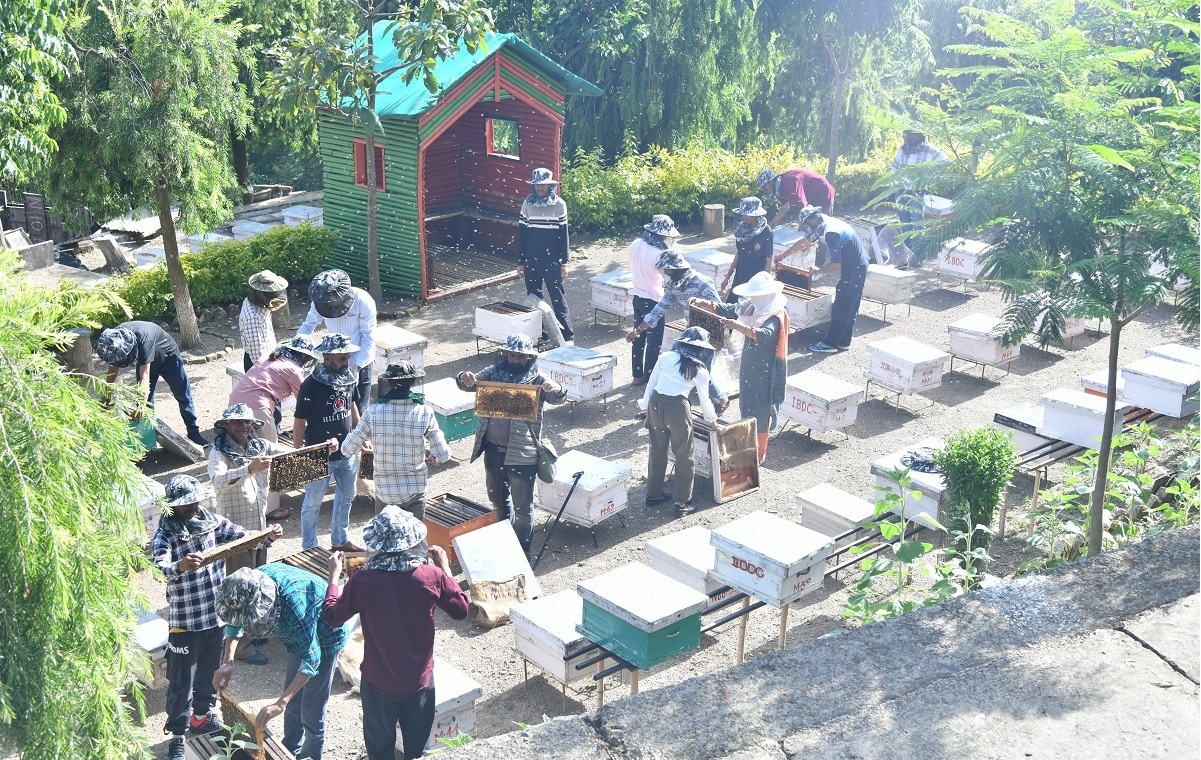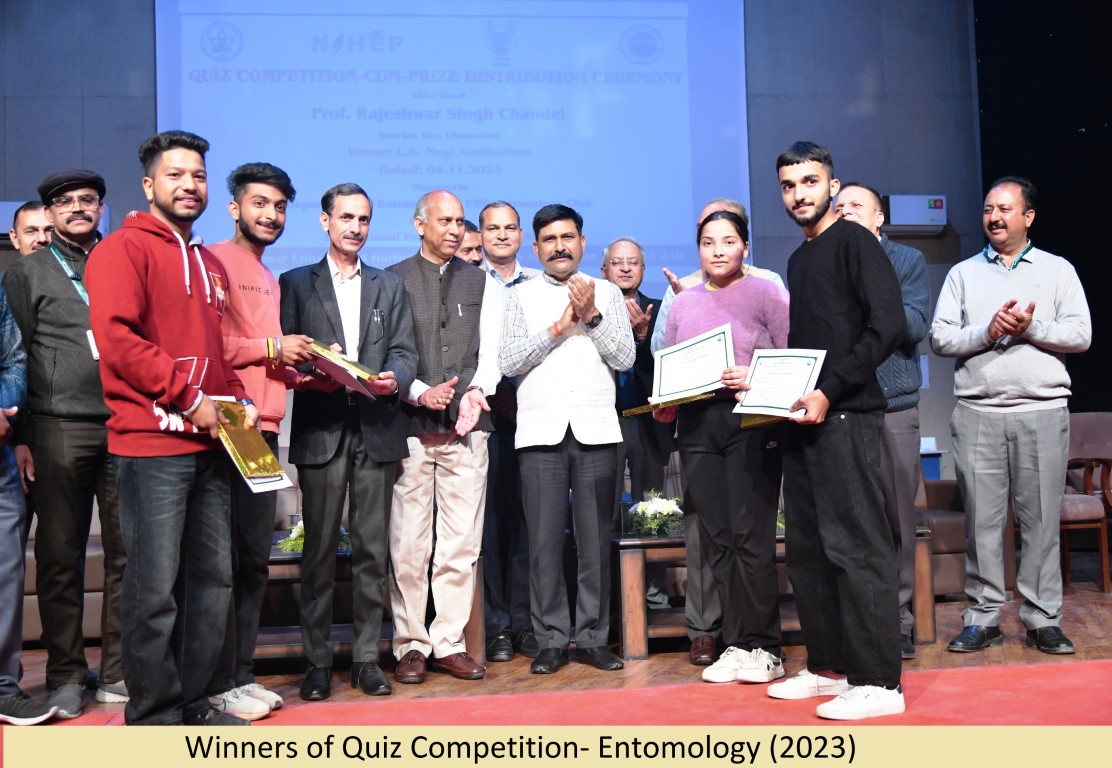The Department of Entomology came into existence as a Section of Entomology in the then Himachal Pradesh Agricultural College and Research Institute, Chambaghat, Solan in 1966 - an affiliate of Punjab University, Chandigarh. With the creation of Himachal Pradesh University in 1970, it became a full-fledged department of this University and later on Himachal Pradesh Krishi Vishvavidyalaya, Palampur in 1978. Finally, in 1985, the Department became an integral part of Dr. Y.S. Parmar University of Horticulture and Forestry. The Department has six sections viz., Fruit Entomology, Vegetable Entomology, Apiculture, Biocontrol, Toxicology and Nematology and imparts education to all the streams from Undergraduate to Post Graduate levels. The Department is playing a significant role in the development of technologies for the management of various insect pests, mites and nematodes in fruit, vegetable and ornamental crops. Besides to this the department is engaged in the development and dissemination of beekeeping technologies to cater the need of farmers of the State. The Department is having State of the Art Pesticide Residue testing laboratory which is pioneer in itself and fully accredited by the NABL. The department is also conferring its services to corporate sector by testing of new insecticides for their release in the State of Himachal Pradesh.
The department offers degree programmes for:

PG Class Room

Laboratory of Biological Control

Farmer's training at UHF Nauni

Farmer's training at UHF Nauni
Research Labs:
Department of Entomology is having six sections and the laboratories under each section are equipped with all modern and state-of-the-art facilities.
Other facilities: